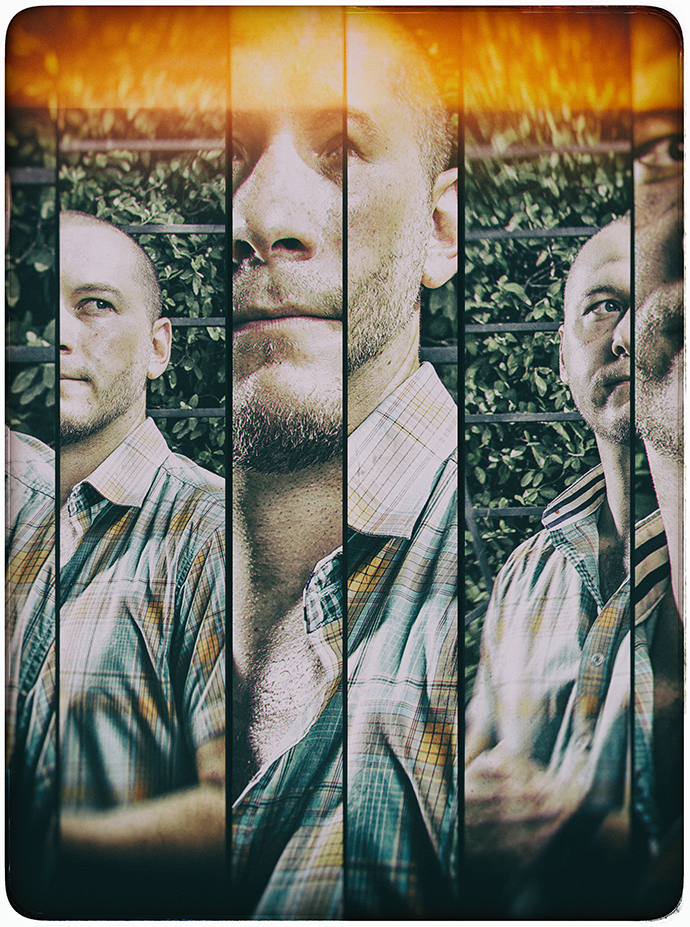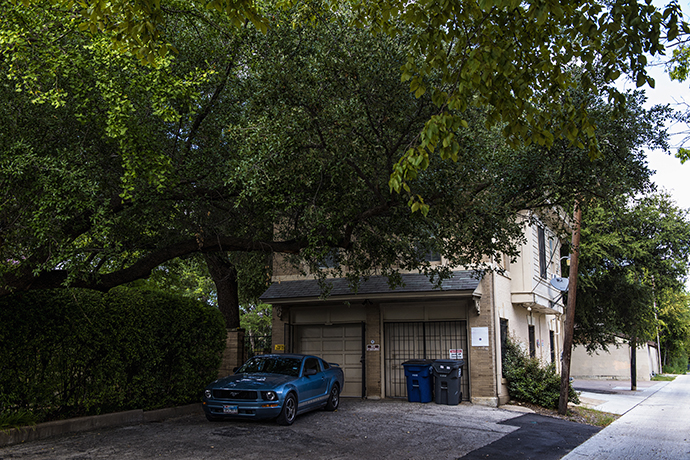Moments of Memento: vicious attack shatters his life and memories but opens the door to a neighborhood love story
Imagine waking up with no idea where you are or what left your body broken and battered. You’re not even sure who you are — the people around you don’t look familiar. You can’t remember where you grew up, or your mother’s name.
“I knew I was in a hospital, and I knew something bad had happened,” says neighborhood resident Adam Palmer.
“Everything else was just …” he says, pausing. “I don’t know, just not there.”
Palmer’s story of love overcoming violence has the cinematic quality of a real-life “Memento,” the 2000 award-winning movie in which Guy Pearce plays a man with no short-term memory. Unlike in the movie, however, there’s no “ah ha” moment in Palmer’s story, no sense of accomplishment or finality.
It has been an arduous road, highlighted with small victories.
“I think we’re just so lucky to have each other,” says Patty Pace, Palmer’s girlfriend who nursed him through his ordeal. “Not everyone is lucky enough to find their best friend through something like this.”
Three years ago, Palmer worked for an event planning company, which often brought him to parties at the Aldredge House on Swiss Avenue. When he heard the historic home was looking for a new caretaker, he jumped at the chance to live in the back cottage of the stately property while he trained to become a paramedic.
Palmer was attacked Sept. 11, 2014, as he came home from working a bar mitzvah. The details are fuzzy between Palmer’s memories and police reports. Although Palmer initially had no recollection of the beating, he says his memories came flooding back a few months later, which can happen with recovering brain injuries.
Palmer says he stopped to cash a check, and had a receipt time-stamped 9:28 p.m., then headed home to take his puppy out before meeting a friend. He says he was attacked from behind by two men and fought back at first.
“And then two more guys came up,” he says. “One had a pistol.”
Palmer was beaten extensively with fists, the gun and a piece of firewood. He says he’s confident he would have been killed if the friend he planned to meet hadn’t driven up and caused the attackers to flee.
According to the police report, Palmer was found at 9:45 p.m. clinging to the security bars on the garage door, bleeding from his ears and complaining he couldn’t hear. Emergency services rushed Palmer to Baylor University Medical Center, where a coma was induced while doctors waited for his swollen brain to recede.
To date, police have not caught the men responsible for the crime.
Across town, Palmer’s girlfriend, Patty Pace, was in her Lake Highlands home when the phone rang.
“He just said, ‘Emergency, 911. Adam’s been attacked. Get to the hospital,’ ” she recalls. “I remember thinking I didn’t even know how to contact anyone. I didn’t have numbers for his mom or his dad or his brother.”
The couple had been casually dating for nine months after meeting at a friend’s holiday party. She had only met his mother once.
When she finally saw Palmer, he was comatose, machines sprouting from his mouth and nose to keep him breathing. “They told us to talk to him, so we did,” she says, remembering long hours in the hospital room with his mother, each holding one of Palmer’s hands. “We were just waiting, waiting, waiting.”
Palmer was confused and scared when he woke up two days later, pulling at the tube in his mouth. He had no idea what happened. He couldn’t remember his 30th birthday party that occurred a week before. He couldn’t remember large chunks of his childhood.
“My mom, my girlfriend and another friend were there, and I had no idea who they were,” Palmer says. “I had what’s called facial blindness. I couldn’t recognize them.”
Memory loss is one of the most common symptoms associated with severe head injuries, but no two cases are alike. Palmer had fractures on both the right and left sides of his skulls, causing extensive damage to his frontal lobe, which controls both old and new memories. His top vertebra was broken. His ear canal was ruptured, resulting in severe hearing loss and permanent damage to his equilibrium.
“Nothing works right anymore,” Palmer laughs dryly.
After several days at Baylor, Pace brought Palmer home to her family’s Flag Pole Hill home, where she, her mother and grandmother struggled to find a rhythm managing his near-24/7 care.
“[My family was] supportive because they knew I needed to do this,” Pace says. “I would want someone to do the same for me.”
Palmer couldn’t walk, the damage to his inner ear throwing him off balance. He was bedridden for weeks. It was months before he could walk unassisted. Cognitively, he lost his ability to easily retain new information; he now relies on endless Post-Its and reminders in his smartphone to keep track of his daily life.
As with many head injuries, the attack sent Palmer’s moods spiraling. Once described as unflappable, he was now prone to fits of anger and despair.
“It took me two years to get my wits and emotions in check,” he says.
Continued healing in his brain paired with treatment for post-traumatic stress disorder has quieted Palmer’s mind, although he still has trouble with insomnia and anxiety. Pace says she had to get to know him again — this was a new man, one who only vaguely resembled the man she once dated.
“He’s not the same person he was,” she says. “But he’s an amazing person. We’ve grown a lot. You get to know people in a really intimate way when you’ve seen each other at your most vulnerable.”
Eventually, Pace implored Palmer to obtain professional care, so he began post-brain injury therapies at Parkland Memorial Hospital. It has been a halting experience, interrupted when he didn’t have the funds to pay and reignited when a caring neurologist took pity on Palmer’s situation.
“Everyone at Parkland who hears Adam’s story wants to help him,” Pace says.
Not only did the attack ravage his body and psyche, it devastated his finances. Without medical insurance, he racked up six-figure medical bills at Baylor, with ongoing medical expenses at Parkland. A GoFundMe account raised around $1,300 for his recovery, not nearly enough to keep creditors at bay, although it remains open for donations.
As for the future, Palmer hopes to become a Dallas Police officer, but he can’t pass the physical exam, at least not yet, if ever. He’ll need hearing aids and surgery to fix damage to his left eye that makes it difficult for him to see. The mental recovery from trauma is a slow, parallel battle that will take its own time to heal.
“It’s going to be many more years before I’ll be OK,” he says through tears. “I’ll never be 100 percent.”
Today, the couple struggles to find their new normal in the wake of violence. Pace dreams of a day when they won’t be defined by Palmer’s condition.
“I’m ready for our lives to get back to us and away from all these medical problems,” she says. “We’d like to move forward. We’d like to get married and have a kid one day. But right now it’s one day at a time.”
Palmer says despite all he has lost, he has gained a partner for life in Pace.
“I couldn’t ask for a better girl,” he says with a smile.








